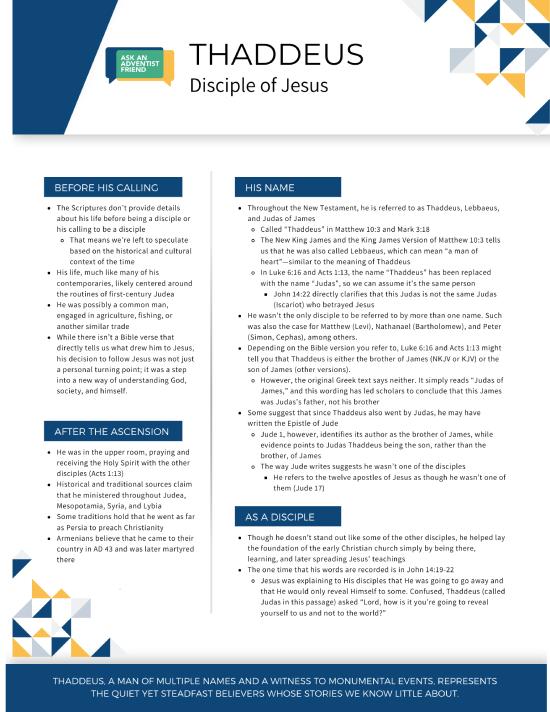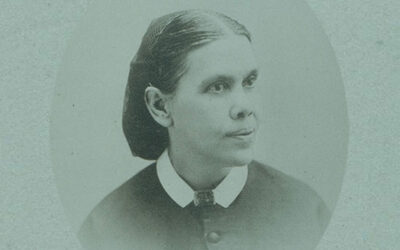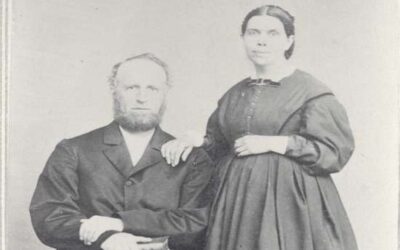Though we know little about him from the Bible or tradition, we do know that he went by a few names, specifically Thaddeus, Lebbaeus, and Judas of James.
As we piece together the small tidbits about Thaddeus, let’s see what these names tell us about him and what we can learn from his life.
We’ll look at:
Thaddeus’s name(s)
 The different Gospel accounts present Thaddeus with different names. In Matthew 10:3 and Mark 3:18, he’s listed as “Thaddeus.” But in Luke 6:16 and Acts 1:13, the name “Thaddeus” is excluded completely, and we find someone named “Judas” instead. For this reason, we can safely assume they’re the same individual.
The different Gospel accounts present Thaddeus with different names. In Matthew 10:3 and Mark 3:18, he’s listed as “Thaddeus.” But in Luke 6:16 and Acts 1:13, the name “Thaddeus” is excluded completely, and we find someone named “Judas” instead. For this reason, we can safely assume they’re the same individual.
And John 14:22 directly clarifies that this Judas is not the same Judas (Iscariot) who betrayed Jesus.
But these names aren’t just a case of mistaken identity or a biblical typo. They’re a glimpse into the naming conventions in ancient times.
Some suggest that Judas was his real name. Then, “Thaddeus,” his surname or family name (Matthew 10:3), would have distinguished him from Judas Iscariot, the betrayer of Jesus.
Just as some of us might go by nicknames or middle names in different settings, Thaddeus’s multiple names may have reflected various aspects of his identity or role within the community. According to Thayer’s Greek Lexicon, Thaddeus can mean “large-hearted or courageous.”1 In Bible times, names were often given based on character qualities (Genesis 32:28; Hosea 1:4-11), and this would’ve been no different.
The New King James and the King James Version of Matthew 10:3 tells us that he was also called Lebbaeus. Lebbaeus can mean “a man of heart”—similar to the meaning of Thaddeus.2
And Thaddeus wasn’t the only disciple to be referred to by more than one name. Such was also the case for Matthew (Levi), Nathanael (Bartholomew), and Peter (Simon, Cephas), among others.
But we still have some mysteries to explore—like who was Thaddeus related to according to the Bible? Was he connected to the disciple James, the son of Alphaeus? And did he write the book of Jude?
More on those next.
Son or brother of James? And, which James?
Depending on the Bible version you refer to, Luke 6:16 and Acts 1:13 might tell you that Thaddeus is either the brother of James (NKJV or KJV) or the son of James (other versions).
However, the original Greek text says neither. It simply reads “Judas of James,” and this wording has led scholars to conclude that this James was Judas’s father, not his brother.3
So, is this James the same as any of the other ones listed in the Bible? In Luke 6:15-16, James the son of Alphaeus (aka “James the Less”) is mentioned. Could they be related?
Adventist scholars don’t believe so:
“Almost certainly this James, the father of Thaddaeus or Judas, is not to be identified with any other James of the NT, for the name was very common.”4
(And the name James remains common, even today!)
The Judas who wrote the Epistle of Jude?

Photo by Tim Wildsmith on Unsplash
Jude, the title of an epistle in the New Testament and the name of the author who wrote it, is the same as the name Judas. This has led some to wonder whether the disciple Judas Thaddeus, also known as “Jude the Apostle,” might’ve written the book of Jude.
The Seventh-day Adventist Bible Dictionary offers a different perspective. It suggests that the author of Jude—who may have been the brother of Jesus (Matthew 13:55; Mark 6:3)—and Judas the disciple are two different people.5
Jude 1 identifies its author as the brother of James, while evidence points to Judas Thaddeus being the son, rather than the brother, of James. What’s more, the way Jude writes suggests he wasn’t one of the disciples. He refers to the twelve apostles of Jesus as though he wasn’t one of them (Jude 17).6
So, now that we know a little more about Thaddeus’s name, let’s see what we can learn about him as a person.
Thaddeus before his calling

Photo by Korhan Erdol
The Scriptures don’t provide details about Thaddeus’s life before being a disciple or his calling to be a disciple. That means we’re left to speculate based on the historical and cultural context of the time.
Thaddeus’s life, much like many of his contemporaries, likely centered around the routines of first-century Judea. He was possibly a common man, engaged in agriculture, fishing, or another similar trade.
In those times, the Jewish people were under Roman occupation, which meant dealing with taxes and soldiers while also trying to uphold the rich customs and laws of Judaism. Like the other Jews, Thaddeus would’ve longed for the coming of the Messiah to end the Roman occupation.
So, what might have drawn Thaddeus to Jesus?
While there isn’t a Bible verse that directly tells us, there are many likely possibilities. Perhaps he felt discontent with the status quo and wanted something beyond the stagnant rituals of the Jews. Maybe it was the Roman oppression that made the message of a new kingdom, one based on love and justice, so appealing. Or it could have been the miracles and teachings of Jesus, stories of which were undoubtedly spreading across the regions.
Thaddeus’s decision to follow Jesus was not just a personal turning point; it was a step into a new way of understanding God, society, and himself.
Thaddeus as a disciple
Once Thaddeus decided to follow Jesus, he became a key player in a story that would shape the course of history. Though he doesn’t stand out like Peter or John, he was still part of the core team—those dozen men who were the first to hear Jesus’ teachings and witness His miracles.
Being a disciple wasn’t just about being front and center; it was about being part of the support system, the group that carried the message of Jesus to the masses. Thaddeus helped lay the foundation of the early Christian church simply by being there, learning, and later spreading Jesus’ teachings. He reminds us that sometimes, the most profound impact is made not by words but by presence and perseverance.
The one time that Thaddeus’s words are recorded is in John 14:19-22. Jesus was explaining to His disciples that He was going to go away and that He would only reveal Himself to some. Confused, Thaddeus (called Judas in this passage) asked:
“Lord, how is it you’re going to reveal yourself to us and not to the world?” (John 14:22, CSB)
His question revealed the mindset he shared with all the other Jews: the hope of a Messiah who would reveal Himself to the whole world and conquer the Jews’ enemies. Here’s how some Bible commentators put it:
“Judas doubtless had in mind a visible manifestation of glory such as was expected to attend the advent of the Messiah. It was apparently disappointing to him that the manifestation was to be made to only a few…. In common with his Jewish compatriots he doubtless shared the hope that the Messiah would manifest Himself in judgment over the Gentiles and in the re-establishment of the spiritual theocracy.”7
Like the other disciples, Thaddeus had to slowly unlearn all he’d expected the Messiah to do. Jesus’ ministry was so different from what he’d been waiting for. But over time, he would come to understand and become a strong witness for the Gospel.
Thaddeus after the ascension

Photo by Jeremy Yap on Unsplash
After Jesus’ ascension, Thaddeus was in the upper room, praying and receiving the Holy Spirit with the other disciples (Acts 1:13). From there, we know nothing more about him except what various historical and traditional sources suggest.
Let’s take a look at those.
Oral church tradition claims that he ministered throughout Judea, Mesopotamia, Syria, and Lybia.8
And some traditions hold that he went as far as Persia to preach Christianity.9 This is the tradition mentioned in Foxe’s Book of Martyrs:
“Being sent to Persia, he wrought many miracles and made many converts, which stirring up the resentment of people in power, he was crucified in the year 72 after Christ.”10
On the other hand, Armenians believe that Thaddeus came to their country in AD 43 and was later martyred there.11
But regardless, his presence at Pentecost suggests that he continued the work he started with Jesus. He likely traveled, spreading the teachings of Christ, and played a crucial role in establishing early Christian communities.
Thaddeus—quiet yet steadfast
Thaddeus, a man of multiple names and a witness to monumental events, represents the quiet yet steadfast believers whose stories we know little about.
His journey with Jesus is a reminder that every follower, regardless of their role’s prominence, contributes significantly to the spread of the Gospel message.
Curious about the others who walked with Jesus?
Continue your journey through history and faith by exploring our series on the lives of the disciples.
Related pages
- “Lexicon :: Strong’s G2280 – thaddaios,” Blue Letter Bible. [↵]
- “Lexicon :: Strong’s G3002 – lebbaios” Blue Letter Bible. [↵]
- Seventh-day Adventist Bible Commentary, vol. 5, p. 597. [↵]
- Ibid. [↵]
- Horn, Siegfried, Seventh-day Adventist Bible Dictionary, Revised Edition, p. 630. [↵]
- Ibid. [↵]
- Seventh-day Adventist Bible Commentary, vol. 5, comments on John 14:22. [↵]
- “Jude the Apostle,” New World Encyclopedia. [↵]
- “St. Jude,” Britannica. [↵]
- Foxe, John, Foxe’s Book of Martyrs, p. 34. [↵]
- “Saints Thaddeus and Bartholomew,” The Armenian Prelacy. [↵]
More Answers
Who Was Mary, the Mother of Jesus Christ?
Mary, Jesus’ mother, was a humble woman, deeply committed to following God’s will for her life. Learn what the Bible says about Mary and what we can learn from her.
What Does the Bible Mean When It Calls Jesus the Son of God?
When the Bible calls Jesus the Son of God it’s referring to His divinity. Learn what makes this so significant and what it has to do with salvation.
How Adventists View the End of the World
The end of the world is no fun to think about. But here’s how we can actually find hope and comfort in what’s to come.
What Is an Adventist Medical Missionary?
A medical missionary in the Adventist Church is someone who cares for the medical needs of people as a way of showing the love of Jesus. They may travel to another country, or even just serve in their hometown.
Is the Seventh-day Adventist Church Protestant?
Learn how the beliefs of the Seventh-day Adventist Church align with the “5 solas” of Protestantism.
The True Events Surrounding the Birth of Jesus
Jesus’ birth involved many strange events: a pregnant virgin, a stable birth, angels appearing to shepherds, and wealthy visitors. These help us understand His supernatural yet incredibly humble life.
Are Seventh-day Adventists Evangelicals?
According to its origins and definition, evangelicalism is about following Jesus and the Bible and sharing the Gospel through the way we live our lives. Adventists wholeheartedly harmonize with these principles.
Could Anything Keep Me from Becoming an Adventist?
We are each saved through Christ. But when it comes to church membership, are there certain beliefs or expectations to become an Adventist?
Do Seventh-day Adventists Have “Rules”?
We uphold principles we believe will help us maintain a closer relationship with Jesus and His Word. Learn how these principles guide Adventist lifestyles.
Your Comprehensive List of Ellen G. White’s Visions
Ellen White—an author, health-reform advocate, Bible scholar, and one of the most influential founding figures of the Seventh-day Adventist Church—was blessed by the Holy Spirit with the spiritual gift of prophecy (1 Corinthians 14; Romans 12:6-8). During her lifetime, she received direct guidance and inspiration from God in several different ways.
Do Seventh-day Adventists Have “Rules” For Marriage?
Around the world, many cultures and religions have various marriage traditions, expectations, or even rules when it comes to choosing a partner, planning the wedding, extended family logistics, or a number of other things.
An In-Depth List of the Prophecies About Jesus
How many prophecies of Jesus are in the Old Testament?
Can a Seventh-day Adventist Marry a Non-Adventist?
Yes. Seventh-day Adventists are not under any official rules that dictate who they can or cannot marry. This is a personal, life-altering decision between the couple and God.
What Adventists Believe About Alcohol and Tobacco Use
The Seventh-day Adventist Church has historically discouraged the use of alcohol and tobacco. Even before the church started in 1863, its leaders were realizing the negative effects of these substances.
What Does the Bible Say About Aliens and UFOs?
In 1938, aliens and UFOs were the subject of a mass prank. Around Halloween, Orson Welles performed a radio adaptation of H.G. Wells’ War of the Worlds. This ended up causing a panic throughout the United States—many people took it to mean that aliens had really attacked New Jersey.
What Do Adventists Believe About the Authority of the Bible?
Learn how one really old book (the Bible) is the sole foundation for all Seventh-day Adventist beliefs.
Is the Soul Immortal? Exploring What Adventists Believe
Based on the way the Bible describes humanity in comparison to God and angels, Seventh-day Adventists believe souls are not something you have, but something you are.
Jewelry—Why Do Many Seventh-day Adventists Choose Not to Wear It?
If you walk into a Seventh-day Adventist church service, you might notice that many people aren’t wearing earrings, bracelets, necklaces, or sometimes even wedding rings.
How the Bible Defines Love
Everyone talks about it, but do we really know what it means?
Why Does God Allow Suffering?
Poverty, genocide, a school shooting. A tsunami or earthquake that wipes out thousands of lives and leaves behind mourning family members.
International Pathfinder Camporee
Youth aged 10-15 in the Adventist Church’s global Pathfinder program look forward to the International Camporee every 5 years. This event brings together Pathfinders from around the world for exciting activities.
What Is Peter’s Ladder of Virtues, and How Does It Work?
Peter’s ladder of virtues is a phrase that refers to eight characteristics to be developed as a person grows in their relationship with Jesus Christ. It can be found in 2 Peter 1.
How Adventists interpret Bible prophecy
Bible prophecy conjures up a variety of emotions in people. For some, it feels exciting or mysterious.
What Counts as “Work” on the Sabbath?
God designed the Sabbath day to be a 24-hour period when we could pause and enjoy the goodness of His creation. We do this by putting aside our regular work so we can focus on spending time with Him and appreciating what He’s created (Exodus 20:8-11).
Moviegoers’ Guide to The Hopeful: The Facts Behind the Film
Learn where and when you can watch The Hopeful and how to get tickets. Already seen it? We’ll uncover the real story that inspired this film.
Protestant Reformation
Martin Luther. The 95 Theses. The Reformation. The Protest. Maybe you’ve heard these terms and wondered, What’s the big deal?
Ellen G. White’s Lasting Legacy
Ellen G. White is a well-known name among Seventh-day Adventists, but she also made an impact in many other parts of history, aside from being a co-founder of the Adventist Church.
Ellen G. White’s Challenging Health Journey
When it comes to lifelong struggles with health, Ellen White is no stranger. In fact, health challenges set the tone for her life early on—years before she was involved in co-founding the Seventh-day Adventist Church.
“What Was Ellen and James White’s Marriage Like?”
Ellen and James White, cofounders of the Seventh-day Adventist Church, met and married under somewhat unusual circumstances. But it’s a sweet story of partners in ministry becoming partners in life. And their married life continued to center on furthering the spread of the gospel together.
Didn’t find your answer? Ask us!
We understand your concern of having questions but not knowing who to ask—we’ve felt it ourselves. When you’re ready to learn more about Adventists, send us a question! We know a thing or two about Adventists.

































